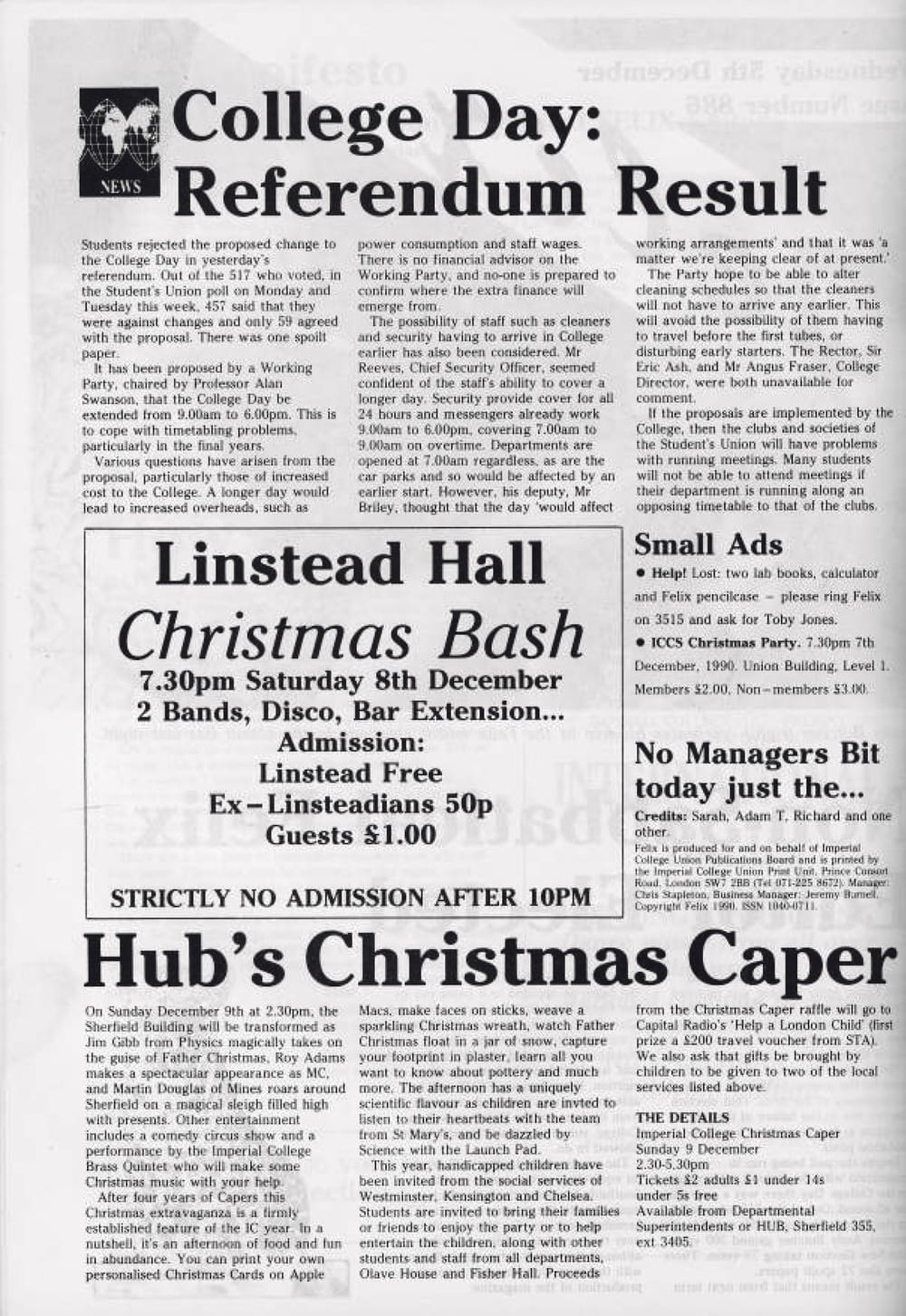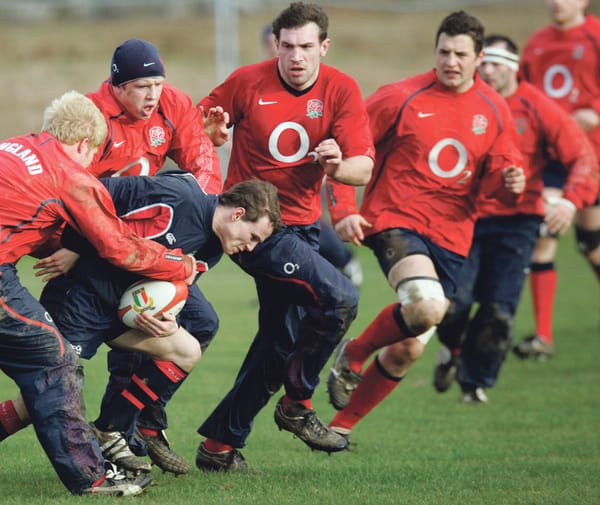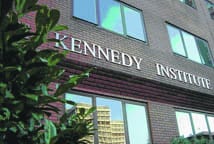From the Archives: Extending the College day
The last time students tried to stop Imperial extending academic hours they had little success, will history repeat itself?

Few will remember the glorious days when a working day at Imperial College was limited between the times of 9.30am and 5.30pm. However proposals to axe this ‘slackers’ paradise were brought forward in the early nineties, causing great agitation amongst students and staff alike. Sound familiar?
A trip to the Felix archives reveals that the first whispers of the possibility of extended hours came in early November of 1990, with the ‘Working Party on College Days’, a committee set up to look into the matter, announced that Imperial lacked teaching space and timetable clashes were becoming the norm, hinting that lengthening the working day was the only viable solution. Almost instantly the cries of outrage were heard, and published, with critics pointing out that societies and humanities (the things that make the science overkill at Imperial bearable) would suffer the most and could even crumble altogether under these new plans.
The next encounter between bureaucrats and students occurred at the the Union General Meeting (UGM), which enjoyed its largest student turnout thanks to the threat of a longer working day, one of the items on the agenda. Straight off the bat, the Working Party committee was keen to emphasise how it represented the interests of students as well as staff and management. However, as I’m sure everyone will be pleased to hear, they were made to look ridiculous when the Royal College of Science handed over a survey they conducted, where an overwhelming 646 replies stated that they believed college days should remain the same.
There were many practical ways of maximising the time already available at Imperial, as pointed out by an editorial shortly after the UGM took place, pointing out that if departments cut down on current wasted hours, there would be no need for timetable changes. The fact that in many courses, material covered by different options and lectures tended to overlap, caused an unthinkable number of hours unavailable for productive activity. Another suggestion was to make use of the expertise of the Humanities Department, which had more experience in time-management, rather than punishing them by reducing the hours available for students to pursue the options they offered. Déjà vu doesn’t seem to cover it anymore.
The arguments were put to the test again in early December of 1990, when the Students’ Union held a referendum on the proposals. It won’t come as much of a surprise to learn that the result came out as 457 to 59 against the increased time and it seemed that this major indication from the student body would finally lay the issue to rest. This was the general consensus amongst students with many a strong worded letter being written to Felix, enjoying the apparent victory over the Working Party, who had “been ominously silent for quite a while now. It’s tempting to think that maybe the resounding ‘f**k off’ given to them in the referendum held before chrimbo hols has halted them in their tracks”.
It brings about quite a sense of sadness to see lines such as “It shows that if we can rise above the rabid apathy…we can change things. It might also show College that they can’t do what the hell they like without considering what we think about it” as we can see from looking at our timetables in 2011, that College has indeed done whatever it pleases. This makes the proposals for extended hours currently being examined seem scarily possible as we have reason to question, yet again, how much attention senior management at Imperial pay to the voices of students and staff alike.







